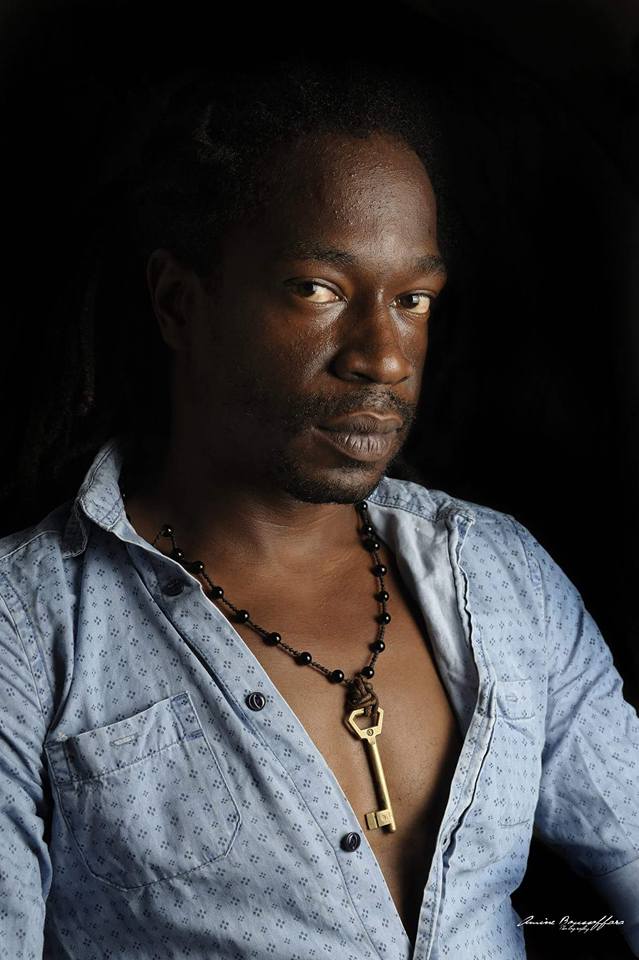Chouchene has also been active in cultural activities and forums inside and outside Tunisia that are associated with human rights organisations and activists, including the Arab Institute for Human Rights, Amnesty International and Anna Lindh (2011–present).
In his interview with Majalla, Chouchene discusses the Tunisia’s Jasmine Revolution, racial identity in the Arab world and the George Floyd protests.
Your poems written in pain express the rejection of the other. Could this other, your reader, free himself completely from the prejudices instilled by society and traditions? Isn't this identity crisis plaguing the Arab world the result of an intercultural mix?
Through my poetry, I try to awaken the personal and collective consciousness of those who read and listen to me. Today, more than ever, it seems essential to me to be attentive to the issues that affect our contemporary societies. This awareness pushes us to ask existential questions.
Regarding stubborn prejudice and the possibility of change, I think I have managed to reach people and make them react in a positive way to curb preconceived ideas. This interaction is particularly noticeable in children, my youngest audience, who recite my poems. Seeing them reciting my words reassures me because children are the heart of future generations. They are the ones who will change the world.
As for the identity crisis, I think that our greatest misfortune lies within biased cultural heritage and false identity. Instead of speaking about Arab identity, I prefer the purely human and universal identity. With globalization, the geographical spheres of the world are shrinking. Therefore, it is essential to open-up to the "other" and to their culture and history to rid ourselves of our rigid identity. Being in Tunisia means that I am Tunisian, Berber and African, but my most important identity is my human one. And, as Mahmoud Darwich says: “The heart of every man is my nationality. So, rid me of this passport!”
You said in a previous interview in 2017 that the Jasmine Revolution is immature. Is your outlook on post-revolutionary Tunisian society the same or has it changed with hindsight? How do you re-read the history of the modern Tunisia?
I believe the Tunisian revolution is still in progress, and as I mentioned before, the revolutionary goals and promises remain unfulfilled because there was no cultural revolution in Tunisia. When I speak of a cultural revolution, I see this transformation as a personal revolution that will bring about a social revolution. Based on this, every individual must revolt against his “self” and against his own dogmas to aspire to a better future and real change. However, despite this observation, I believe that Tunisia is experiencing the necessary contractions which will birth a new generation filled with hope and a deep desire for change.
You have previously spoken about the gap between Arab societies and the developed countries in terms of human rights and the right to be different. Today, however, anti-racist demonstrations are shaking the world, especially in the West, following the death of George Floyd in Minneapolis. How did you react to the incident? Do you think that these protests will succeed in bring about justice in the world?

The United States has always been a scene for racist attacks before and after the 1960s. Yet, the rapid and widespread release of the video showing the arrest and death of George Floyd has shaken America and the world. People’s reactions were surprising in a positive sense, and the time has come for these ongoing racist violations to stop. I really hope the situation changes and other countries realize that the Arab world also suffers from this same disease as the US. These protests demanding that the dignity of African Americans be preserved and the right to be different will definitely affect the Arab world. I really hope that these protest movements succeed because the decades-long struggle with racism seems to be spreading despite advances in human rights. It is a shameful and disgusting farce which demeans all of humanity.
Could we see Anis Chouchène the poet entering the world of politics or even engaging with politicians?
Politics, as we all know, is a game of lies that is confined to those who desire “authority” and control of “power”. Few politicians are honest and work to achieve a positive change. I have no desire to enter political life since my only concern is to be a distinct voice. I try to be the voice of truth and the voice of the voiceless.
How do you see the way to salvation? Does peace have a price?
Obviously, to get peace, you have to pay the price as while some people support peace, there are others who oppose it. The world is mainly ruled by powerful leaders and influential lobbies whose interests are limited to controlling everyone's fate for purely economic ends. Every person working for peace disturbs the system and undoubtedly suffers from inconvenience. They may be jailed, starved and even exposed to psychological stress or physical assault. Free words and thoughts terrorize the whole world more than tanks and rifles. But it is worth the risk.
One last word?
Peace upon every soul that wants to breathe
Because the mind is free
And the free person doesn’t remain silent.







